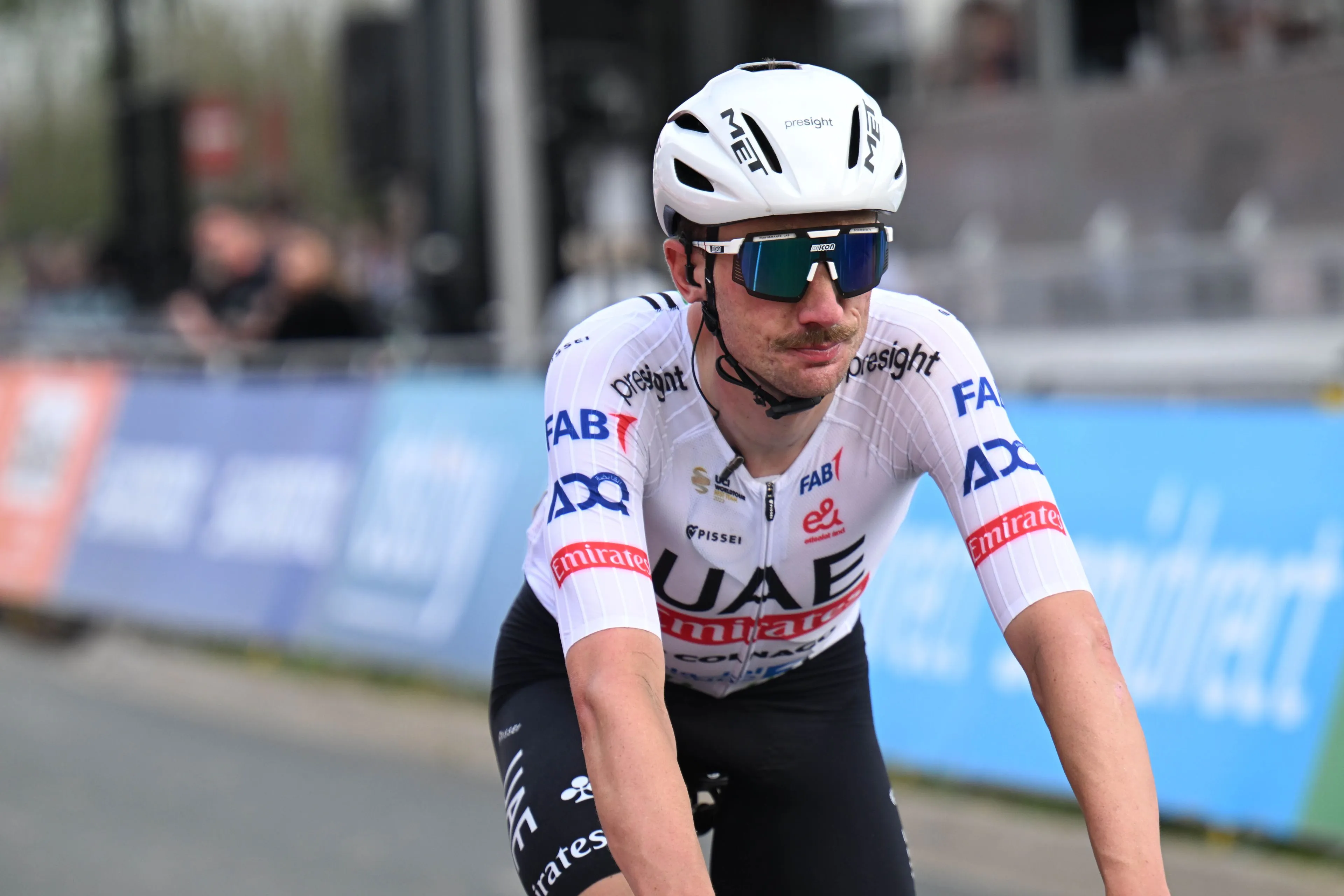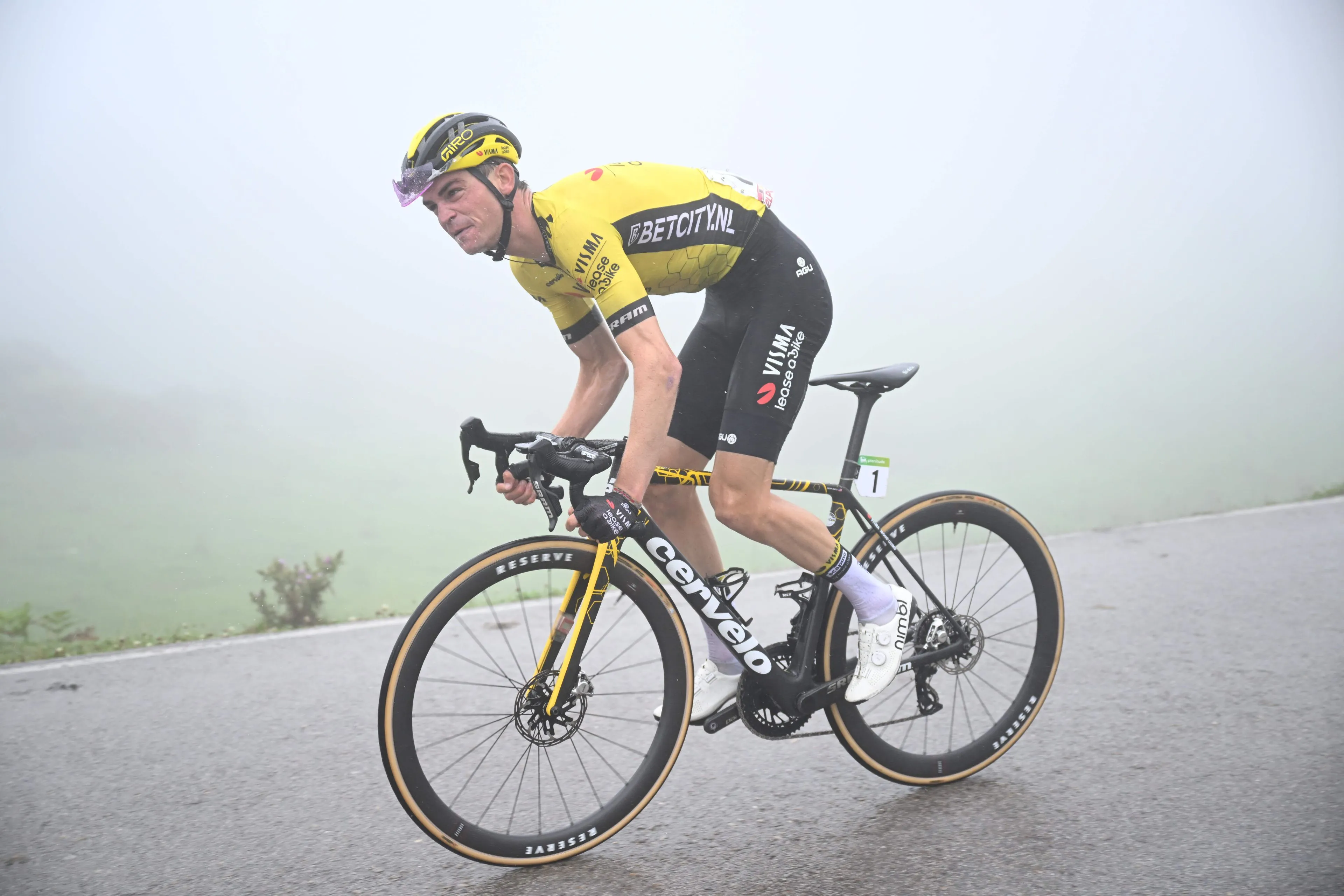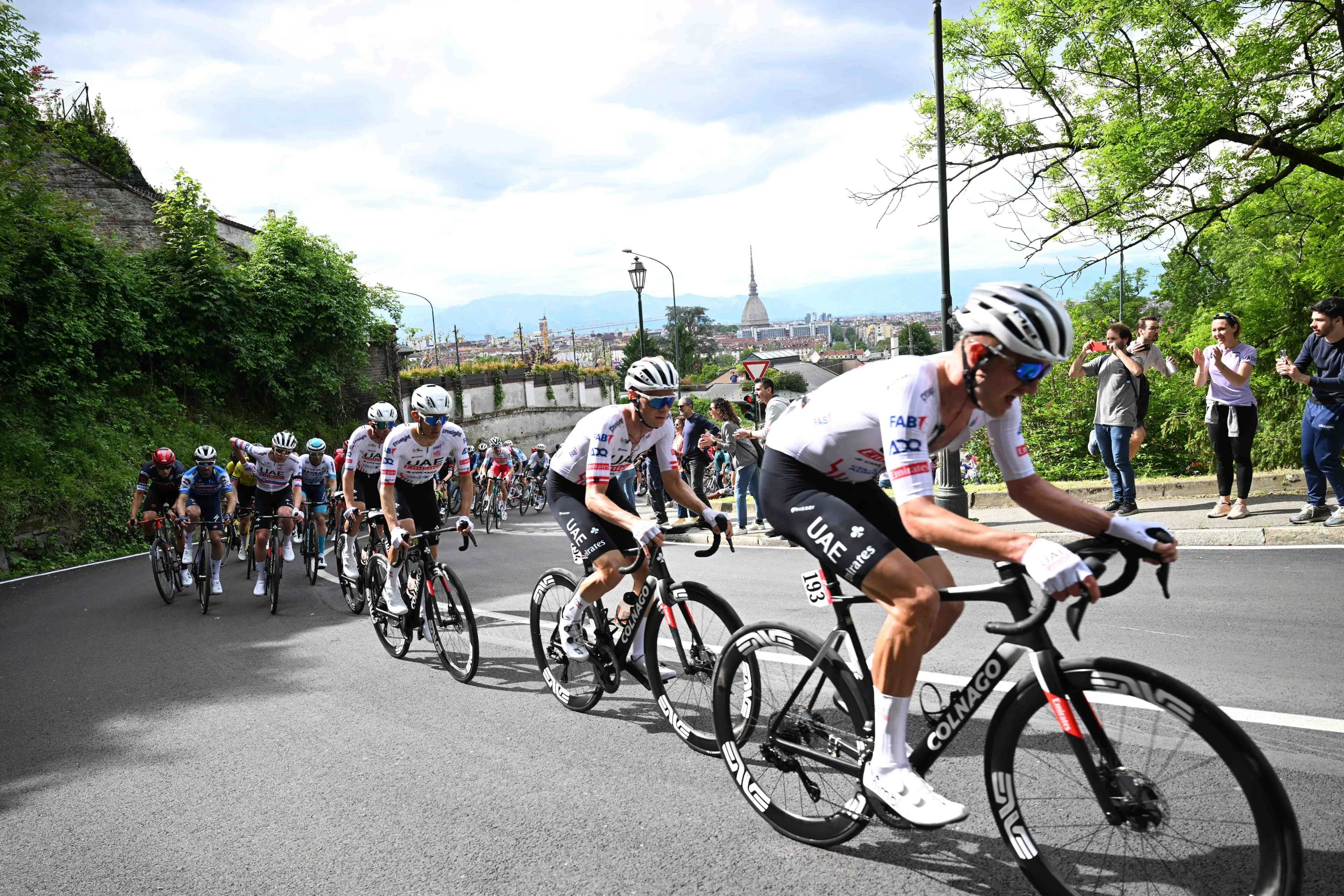Coach Roglic looks back on difficult preparation Vuelta: "Have hesitated to quit his season"
CyclingMonday, 09 September 2024 at 19:03
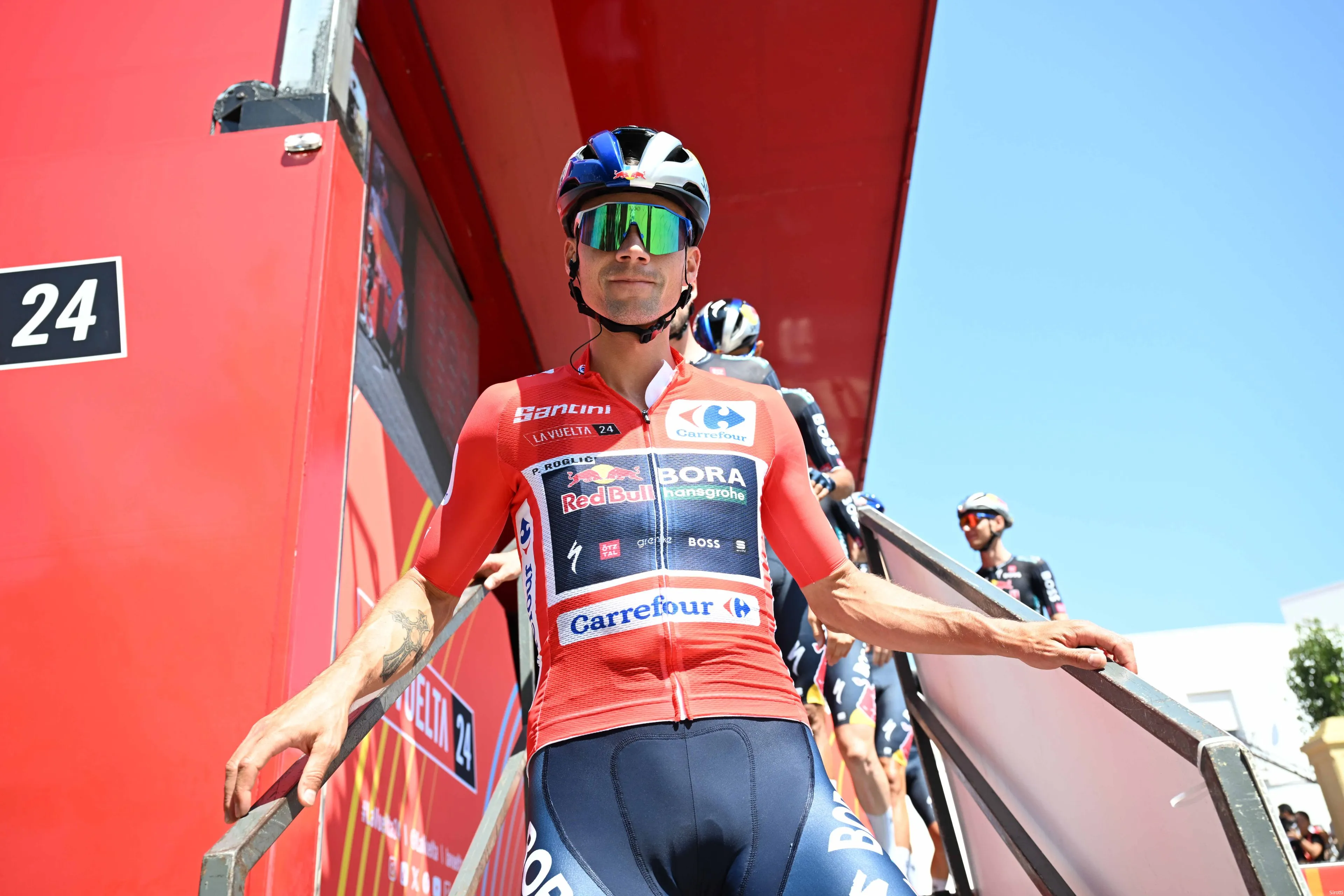
2024 was yet another year in which Primoz Roglic (Red Bull-BORA-hansgrohe) wrote the Vuelta a España to his name. After overall victories in 2019, 2020, and 2021, the Slovenian scored his fourth Vuelta. It was a particularly outstanding performance since Roglic had to abandon his fight in the Tour de France after an ugly fall. In conversation with HLN, his trainer, Marc Lamberts, reflected on the period after that fall and the course of this rather unique Vuelta a España.
Regarding difficulty, Lamberts would put this Vuelta final victory at the very top compared to the Slovenian's other three final victories. "What I have seen over the past three weeks has left me speechless several times," the Belgian trainer interrupted. "In terms of altimeters, it was extremely tough, eighteen percent more altimeters than in the past Tour. And then we raced like crazy because no GC team was strong enough to be in control..."
Someone who watched the Vuelta daily saw that the classification riders had almost no real rest days in between. That is sometimes the case in other grand tours. "In terms of intensity, this was the toughest grand tour I've seen yet. Sometimes, during the Vuelta a España, you see stages where they barely push 2.8 watts per kilogram of body weight. In this Vuelta, I had to look for rides that pushed 3.8 watts per kilogram of body weight. On average, Primoz pushed more than 4 watts per kilogram of body weight every day. I've never seen that before. I was shocked every day," Lamberts analyzed.
Read more below the photo!
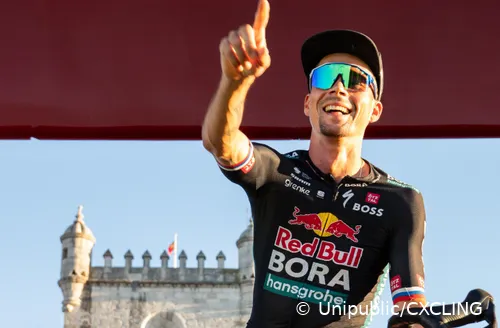
"We hesitated whether we wouldn't be better off quitting his season," Lamberts said
Roglic returned to the Vuelta after his crash at the Tour de France. Therefore, the preparation leading up to this Vuelta a España was also extremely tight. 'He broke a transverse spinal vertebra after that fall in the Tour. After he quit, he stayed off the bike for one week and went for three days of rehabilitation at the Red Bull Performance Center in Salzburg, where they treated him intensively. "We then doubted whether it wouldn't be better to quit his season, but we got the approval from the orthopedists and the doctors that he could cycle, but in pain," Lamberts recalls a difficult period.
"We then went on a three-week altitude training trip to Tignes," the Red Bull-BORA-hansgrohe trainer continued. "But in the first week, there was no intensity because of the traction on that side of the spine. Only in the second and third weeks of the altitude training was he able to complete high-intensity interval training. We still managed to complete three weeks of 28-30 hours during that altitude training, but always with pain. That pain didn't go away during the Vuelta either, but became bearable to perform."
Read more below the photo!

"Roglic is no Pogacar or Vingegaard"
According to Lamberts, Roglic appeared at the start of the Vuelta at "between 95 and 97 percent" of his ability. Partly for this reason, his trainer also believed that he was exceptionally late in the overall victory for his leader. "Not until Saturday night after the second-to-last stage. I mean that, and I also communicated that to the team. Especially since he had to race so atypically."
Leading up to the Vuelta a España, Lamberts had a prediction. "Before the Vuelta, I had told the team management: 'It will have to happen in seconds, not minutes.' Primoz is no Tadej Pogacar or Jonas Vingegaard, who can grab two minutes on a long climb.... And then what happened: they gave Ben O'Connor more than six minutes as a gift."
And that gift to the Australian was not the plan, according to Lamberts. "A deficit that Primoz had to make up somehow. I was very unhappy with that situation, knowing what Primoz's great strength is: if he can race defensively and follow the wheel of someone like Mas until the last five hundred meters, then snap away fifteen seconds and take the bonuses. Now, he suddenly had to attack, and Mas was in his wheel more than the other way around. Primoz also surprised me there," Roglic's trainer reflected proudly.
Read also
IDL-productions
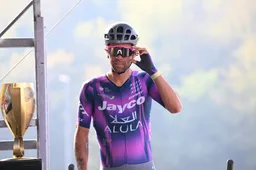
Sanremo, a world title and the yellow jersey: Michael Matthews escaped death - and that reignited his spark
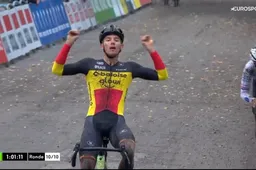
Unlike road colleagues Van der Poel or Van Aert, Nys rides twice as many cyclo-crosses: 'He doesn't want to ride only ten cyclo-crosses'
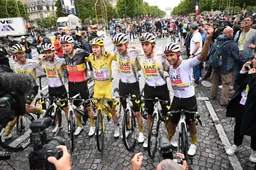
95 (or was it 97?) wins and a new record year, but losing that one race still hurts UAE Team Emirates - XRG

Former cyclocross world champion recalls wonderful memories of young Nys: "Back then we thought: that's not going to work out"

There was smoke so there was fire, but in 2026, how will Lidl-Trek make sure that fire doesn't flare up again?
Latest Cycling News
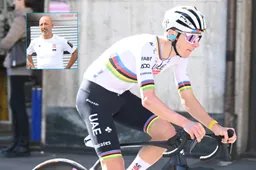
Why is Tadej Pogacar's program (still) so limited for 2026 and when will he go searching for altitude?

News on the way from Chris Froome: 'People will know soon enough'
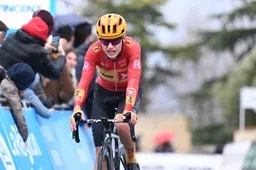
Uno-X thinks it has found explanation for blood clots in brain of one of their riders: '25 percent of people have it'
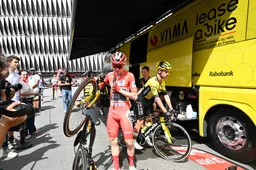
3 Grand Tours known, so at Visma | Lease a Bike they sit down to make a good plan
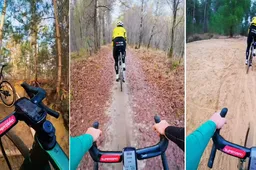
📽️ Following Wout van Aert during first cyclocrosscross-training Visma | Lease a Bike-rider
Popular Cycling News
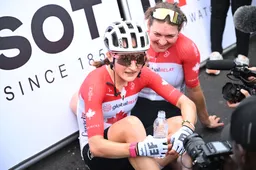
World champion Vallières reveals horrific circumstances in women's cycling: 'When someone grabs your stomach every morning...'

Why is Tadej Pogacar's program (still) so limited for 2026 and when will he go searching for altitude?
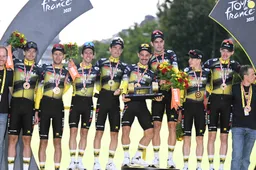
Analists see Brennan as stand out at troubled Visma: 'I don’t really see many true gems among them'

📽️ Following Wout van Aert during first cyclocrosscross-training Visma | Lease a Bike-rider

Uno-X thinks it has found explanation for blood clots in brain of one of their riders: '25 percent of people have it'
Latest Comments
- Those events are mental rest for him. Fun, without expectations. *Sagan lost his abilities because he gained weight and got lazy. Pogi will likely retire before that has a chance at happening.Veganpotter14-12-2025
- Ah, the consequences of riding for Israel.Veganpotter11-12-2025
- Pidcock could follow everyone but Pogi while finishing 3rd. No second place rider this season😃Veganpotter16-11-2025
- Now the Palestinian protestors can stop their whining. Trump came to the rescue. So they can now STFU and go back to waving the rainbow flags.raufus15-10-2025
- Cracked the code lol. If it was that easy to 'crack the code' jonny Vegas would be charging up the Kwaremont giving Pog a dose of his medicine. Evenepoel can't match pog on a climb and neither can mvdp. Anything with a half difficult climb and Pog smashes the field. Even on flat(ish)parcours like Roubaix it came down to a mistake and crash by pog to definitively crown mvdp. MSR is the only one that Pog probably won't win.kevpt10-10-2025
- We've seen this movie before. I think Pogacar is doping.DeadBlow10-10-2025
- 👍Bea08-10-2025
- 👌🏻Bea08-10-2025
- What the data doesn't show is how much of an effect drafting had for evenepoel. Pogacar went with del toro at 100km whilst Evenepoel was still in the bunch. Despite the bike changes he still had a lot of assistance getting back to the bunch. Pogacar then rode 60km solo whilst evenepoel rode with Healy/Skjelmose until going solo in thd last 10-15km. Thats ~20% less power / energy requirements for 45-50km. Apples and oranges...kevpt30-09-2025
- 👏👏Bea24-09-2025
Loading
